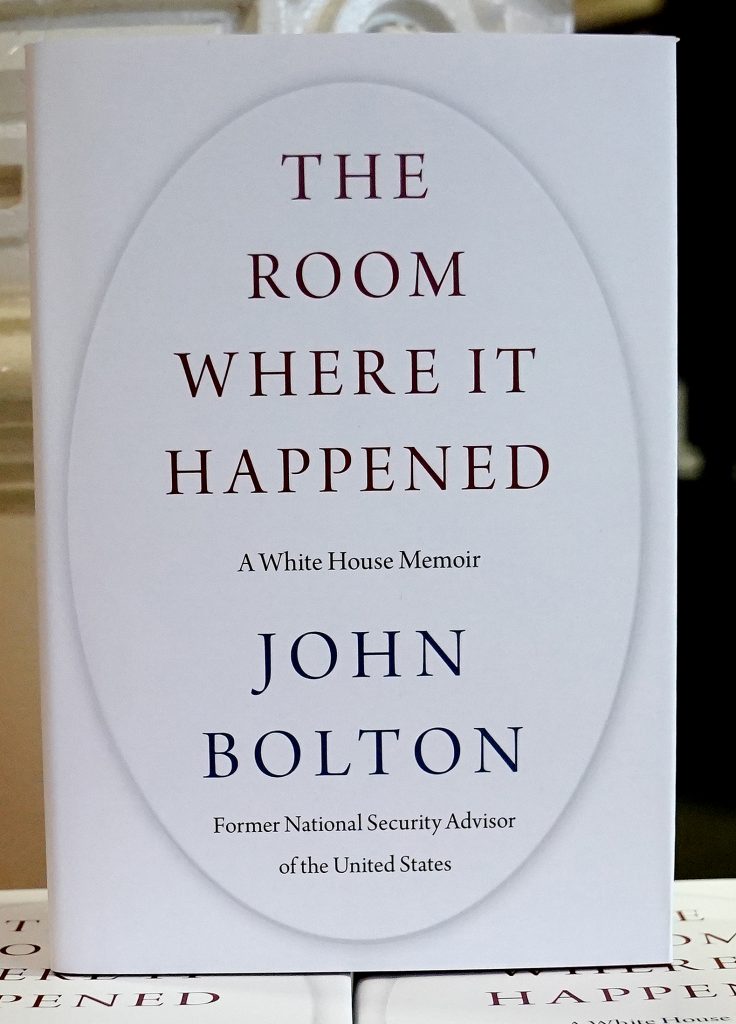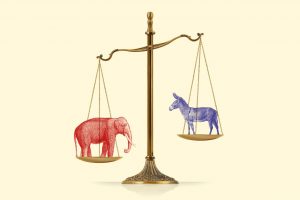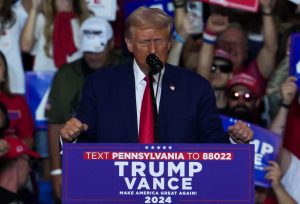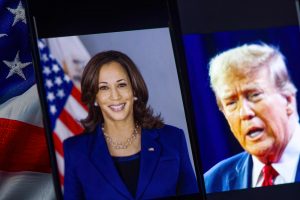Ambassador and former National Security Ambassador John Bolton expresses concerns about the prospect of Trump not accepting an electoral loss in a very tight election.
He also expands at length on the current and future challenges in the US-Russia and US-China relationships.
You worked with former president Trump as his National Security Advisor. What can you tell us about that association and why you think he is a peril to American democracy?
As I explained in my book The Room Where it Happened: A White House Memoir at some length, I believed that Trump like every one of his predecessors would have been affected by the gravity of the responsibilities he had, the implications of the decisions he would have to make, certainly in the national security field, and that this sense of responsibility would have disciplined his thinking and would lead to coherent policies and programmes. But I soon found out that the gravity of all these issues did not provide discipline for him.

A copy of John Bolton’s book ‘The Room Where It Happened’ are pictured on display at a Barnes and Noble bookstore in the Manhattan borough of New York City, New York, U.S., June 23, 2020. REUTERS/Carlo Allegri
Is Donald Trump a bit off base as an individual?
I think he’s not well-educated in international affairs. He doesn’t have a philosophy. He doesn’t think in policy terms as we understand that to mean. His decisions are transactional, ad hoc, episodic and typically filtered through the prism of whether it benefits Donald Trump. So it’s pretty hard to carry on a coherent national security strategy conversation under those circumstances.
What do you think is at stake in the upcoming presidential and Congressional elections, for America and the world?
A lot rises on it. Unfortunately, I think we have two candidates who for different reasons neither one of them should be President of the United States. Ineffective leadership in a world that is increasingly dangerous and challenging will be bad certainly for the United States, but I think for the Free World as well.
How do you view the present and the future of the Republican Party? Since 2016 Trump essentially hijacked the party of Ronald Reagan and the two Bush presidents. Those who brought those presidents to power then can barely recognize it.
Trump was nominated three times. There is no doubt about it. But I think that a substantial majority of the party remains a Reaganite party. Certainly on national security policy the specific issues may change but the principles remain the same. A lot of Republicans, including this year, will vote for Trump unhappily, because they know that he’s not going to follow a Reaganite approach, but they are going to vote for him because they fear the consequences of voting for Kamala Harris more. So I think whether Trump wins or loses in November that the battle for the soul of the party will be underway.
Do you think the former president will win?
As the pollsters like to say it could be the late deciders who will determine the outcome.
If Vice President Harris wins do you think we might see bloodshed as at the Capitol on January 6, 2021?
The question of whether or not Trump accepts defeat is obviously very much up in the air. Whether it gets bloody or not I don’t know, but I think this time he will not have the influence he did in 2020 he was sitting in the Oval Office. This time he will be sitting by the swimming pool at Mar-a-Lago.
Do you find it at all shocking that a man who basically staged a coup in the last election in the storming of the Capitol building and who has a number of felony convictions can be a presidential candidate?
It’s unbelievable to a lot of people obviously that he was re-nominated again. But it’s not over yet. That’s for sure.
What is the role of America’s alliances in maintaining US geopolitical and economic power? What are the perils of isolationism for the US and the international security structure?
I think it is very dangerous. I think Trump doesn’t necessarily think coherently but I do think that his impulses are isolationist and a number of his close advisors and supporters are isolationist and actually think about it more coherently than he does. I think that the possibility that Trump would withdraw from NATO is very high. That would be a catastrophic mistake but I think it is a real threat.
At a NATO Summit in 2018 I think his withdrawing was a distinct possibility?
He came within about an inch of withdrawing from NATO then. He didn’t, and fortunately he never got that close again. People were on the alert for it. But in a second Trump term where saying “Yes, Sir” to Trump is going to be a high priority, and based on personal loyalty to Trump I think the chances of him withdrawing are very, very high. It is a very real threat.
How should the US deal with Russian expansionism, both in the current Russo-Ukrainian war and in the future? What do you see as an exit strategy? Henry Kissinger after the invasion said it is in the US’s interests to have a good long-term relationship with Russia, presumably as regards dealing with the Chinese.
I think it’s also important to show that unprovoked aggression on the continent of Europe can’t succeed. We said in 1945 we weren’t going to let that happen again, and right now in Ukraine it is happening. I think the implications go beyond Europe as well. I think the Chinese are watching and I think their conclusion unfortunately could be that if we’re not prepared to stop aggression on the continent of Europe, we’re not going to be in a mood to stop it if China goes after Taiwan.
Right, but how much are American taxpayers prepared to pay do you think?
Well we may find out if Trump gets elected because I think the likelihood is very high that he would begin to cut off American assistance to Ukraine. He said he would get Zelensky and Putin in a room and negotiate a deal in 24 hours. I don’t think that’s clear, but I think the odds of reducing or eliminating support to Ukraine in a Trump administration are very high.
It’s important that Putin not succeed in Ukraine. We know what Putin has said going back to 2005 in his speech to the State Duma, that the breakdown of the Soviet Union was the greatest geostrategic catastrophe of the 20th century. Then at the Munich Security Conference in 2007, he clearly said again he thinks the collapse of the Soviet Union was a disaster and that he aims to put not the Soviet Union but the Russian Empire back together again. If he succeeds in Ukraine the other parts of it [the former empire] are in real jeopardy.
I think that a military success in Ukraine would go further in setting a foundation for a better relationship with Russia than a Russian victory, because if Putin were to prevail he and his government would conclude that they found a way to succeed, and they would try it again elsewhere.
If you were National Security Advisor today, what would be your exit strategy from Ukraine? Because as it clearly seems a very protracted proxy war is going on.
Unfortunately, we waged it very poorly for two-and-a-half years. I don’t think that we as the US and NATO as a whole supplied support to Ukraine in a very strategic way and that is one reason that the war is gridlocked. Defeating the Russian aggression remains critical. But I think as it became clear to Moscow that the invasion wasn’t going to succeed, defeating the Russian aggression remains critical. I think that if there is any chance for diplomacy it comes when Russia is retreating and they realise it could get worse unless they are prepared to engage in diplomacy.
So what is the US going to do?
I think if Trump is elected he will allow the Russians a victory. I don’t know what Harris is going to do. The closest you can predict is that she’ll look a lot like the Biden administration. That’s not terribly good news but she doesn’t know much else. So I think that’s the best we’re going to get.
How should America deal politically in terms of the Sino-US economic and geopolitical political rivalry?
It depends on how far China want to takes it, but I think the building blocks are there for a strategic response. We have the Asian quad – Japan, India, Australia, and the United States. We have the AUKUS agreement between Australia, the UK, and the United States [to promote a free and open Indo-Pacific] and our nuclear-powered submarines. There is increased cooperation between Japan and South Korea on military matters. I think we need to offer greater assistance to Taiwan, and develop more cooperation with the ASEAN countries against China in the South China Sea. I think that’s how you have to do it. You also have to be firm on the economic side against Chinese theft of intellectual property and firm on the political-military side. Reagan’s peace through strength is the policy to pursue.










